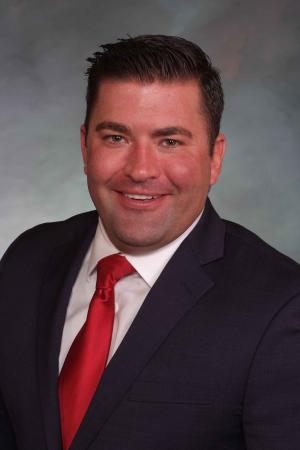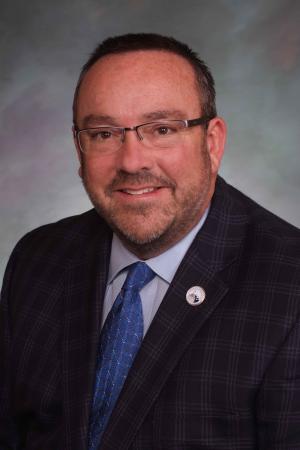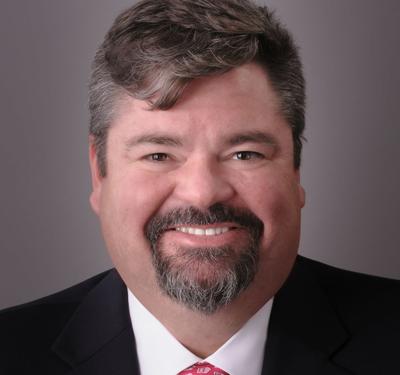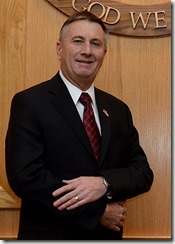GREELEY — Republicans in Douglas and Weld County have long bantered jokingly with each other about which Colorado county is the “most red.”
That competition for top spot continues this year as three newly elected state representatives from Weld were likely the deciding factor in a change of minority leadership in the Colorado House of Representatives for the next two years.

Longtime Douglas County leader Patrick Neville stepped down three days before the election amid caucus disruption. Weld County’s republican candidates for House districts 48, 49 and 63 were courted throughout the election cycle by supporters of the man Neville backed as his replacement, fellow Douglas County representative Kevin Van Winkle.
Instead, fellow Northern Colorado Rep. Hugh McKean, R-Loveland, was elected as the new minority leader.
So that argument may never be reconciled, but after the 2020 election, one thing is clear, the two counties — separated only by the Denver-metro area — could be among only a few large areas in the coming years to hang on to their red roots in a growing sea of Colorado blue.
Although many smaller, rural counties still represent a large part of conservative Colorado, Complete Colorado looked for counties across the state with more than 150,000 residents to see where conservative strongholds remain among more populous centers.
El Paso (720,403), Douglas (351,154), Weld (324,492) and Mesa (154,210) mirror each other in just how red they have maintained their counties to date. All four counties voted for President Donald Trump, Sen. Cory Gardner and their respective republican Representatives in the 2020 election. The only exception was in the Sixth Congressional District, where incumbent Jason Crow defeated his Republican challenger Steve House in the Douglas County portion of the district.

All four counties are also nearly 100 percent represented by Republicans at the State Capitol. In Mesa County, all three of the state legislative seats are held by Republicans. In Weld County, only one of six seats in the state legislature, House District 50 is held by a Democrat. In Douglas County, all six of its seats in the state legislature are held by Republicans. And in El Paso only two of its 13 legislative seats are held by Democrats (House districts 17 and 18).
More interesting, possibly, is that all locally elected positions, in all four counties, are held by Republicans, including all commissioners, the District Attorney, Clerk and Recorder, Treasurer, Assessor, Sheriff, Surveyor and the Coroner.
But for Mesa and El Paso counties, there is some evidence they may be headed in different directions politically. Mesa’s lock on a Republican majority is likely to remain for years to come, as even its largest city in the county — Grand Junction — is still very red among city council members with a 5-1 split among Republicans and Democrats, with one unaffiliated.
The same is not necessarily so for El Paso, where the elected council in the largest city of Colorado Springs often times leans to a a 6-3 liberal majority, leading some to believe that as Colorado Springs continues to grow, it is likely the county will become more purple.
But Douglas and Weld (relatively the same size), will likely be bickering over who is the darkest shade of red for decades to come.
Douglas County Commissioner elect George Teal, who until the election served on the Castle Rock Town Council, said he believes Douglas County has been able to remain red because it continues a trend of being the place

where Republicans go to live if they want to stay close to the metro area.
“We are experiencing a great deal of growth,” Teal said. “I think people are going to continue to make those decisions to come here, particularly among the millennial generation as they get married and want those 2.3 kids and a dog in the suburbs with a back yard and a third car garage for their ATV.”
Teal said Douglas County is the most affordable county in the Metro area, so young families can still have that traditional suburban living with an “inherently conservative lifestyle.”
Teal expects it to stay red for many years to come. Although city elections are typically non-partisan, Teal said those who were recently elected collectively lean conservative..
“Douglas County demonstrated this year it is the red wall in the state of Colorado that the blue tide crashes and dissipates against,” Teal said.
Ninety miles to the north, however, lies another red wall — Weld County, with the one big difference between the two being the organizational structure that Teal said he hopes to see in place in Douglas County by no later than the end of his first term.
Weld is one of only two counties (the other being Pitkin) in Colorado to have organized as a home rule county. Although the county still acts as the catalyst for state programs, home rule policies have allowed the county to push back hard against what Weld’s commissioners continually call overreach by a Democrat-controlled legislature,

Under home rule, counties are able to do such things as set their own term limits, determine elected official salaries, and set the number of commissioners, among other things, including — with voter approval — the decision to make the coroner, the surveyor and the treasurer appointed positions under the board of commissioners.
While Weld is one of 14 counties statewide that actually handles the day-to-day business of the government, bypassing the need for a “county manager,” it’s what it’s done with that structure that is so unique.
“There are the five of us instead of the county manager making the decision,” said Weld Chairman Mike Freeman. “Rather than us meet once in a while like city governments, you couldn’t get more hands on than this board, good or bad.”
Each of the commissioners oversees a department of the government, something that is highlighted now more than ever as the biggest difference from their statutory counterparts.
While many other county health departments are overseen by an appointed health board, Weld County Commissioners are themselves the health board. With all the pandemic mandates being handed down by the state, Weld County has taken the position not to have its health department enforce them.
Commissioners have repeatedly said they cannot shut down businesses and will not tell them they cannot reopen. Because of that health board status, Weld County Commissioners are the only ones that can revoke a restaurant license regardless of who brings the complaint.
“They are in a contract with the Colorado Department of Health and Environment,” Freeman said. “They are following their guidelines about what are violations, things like what temperature to keep food at. But if the state wants to take the license of a restaurant, they still have to come to our board to make that call.”
Freeman agreed with Teal that Weld’s red wall will be very large for a very long time. He said although growth may lead southern Weld around Frederick, Firestone, Dacono and Erie more blue in the future, he doesn’t think the county seat — Greeley — will ever turn completely blue, as it is dependent on traditionally conservative principle for it’s economic stability.
“We are very unique because Weld covers more than 4,000 square miles,” Freeman said. “A lot of weld is extremely rural. And the importance agriculture and oil and gas plays on Greeley’s economy, continues to keep Greeley pretty Republican.”
Greeley’s City Council is currently a 6-1 majority Republican split. The lone Democrat comes from the same general area as its lone Democrat House seat.
“It’s going to be tough as we see the tremendous amount of growth along the I-25 corridor, but it’s going to stay red for quite a while. There is a huge enough lead to be there for a while.”
Freeman, who was just reelected to his third and final term, also said he believes more and more conservatives will move into Weld to escape the policies of the surrounding liberal/progressive counties.
“Believe me when I say the board will continue to fight to deal with what is going on with the attack from Denver on our agriculture and our oil and gas and everything that is important to Weld County,” he said.
If Teal has anything to say about it, Douglas County’s organization will look a lot like Weld’s before his first term is up. He has already met with the county manager to look at making Douglas a home rule county as well, and although the county has agreed to remain part of the Tri-County Health Department for the time being, commissioners still plan to leave.
“I am committed to forming an independent health department and health board by Jan. 1, 2023,” Teal said. “And I just talked to the county manager about discussing how we can achieve home rule status in two years. I want what is the fastest possible solution to get Douglas County on the road to home rule.”


